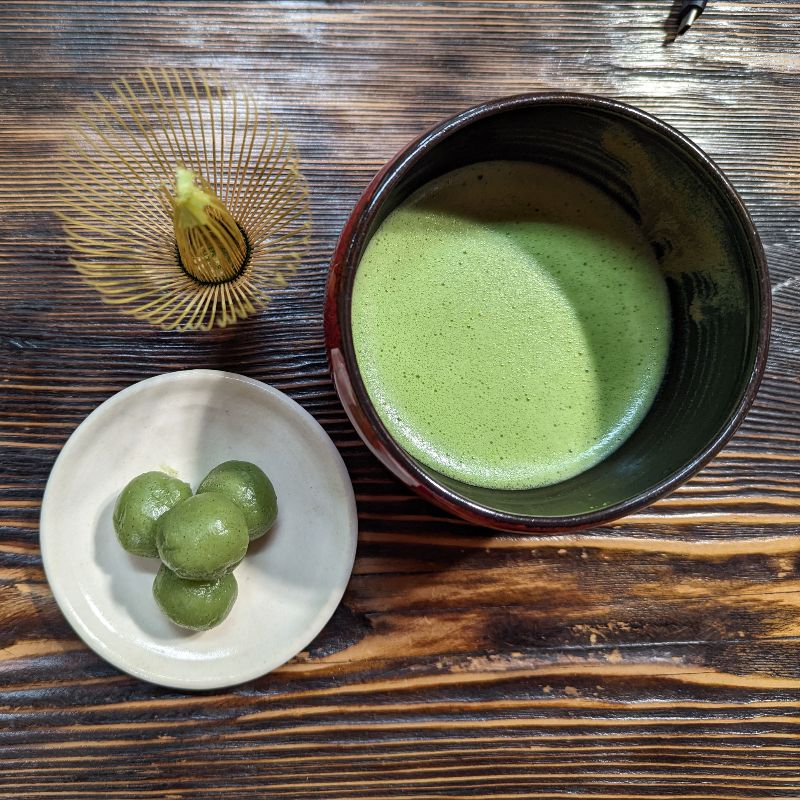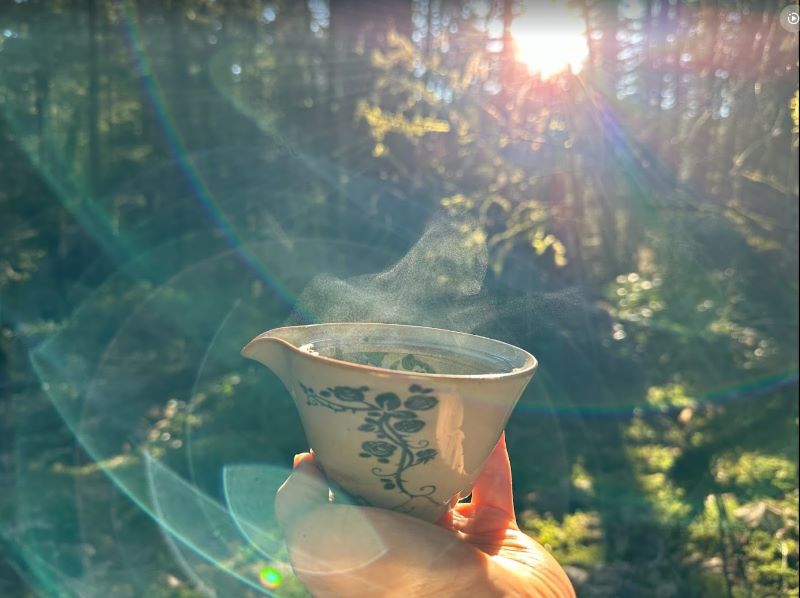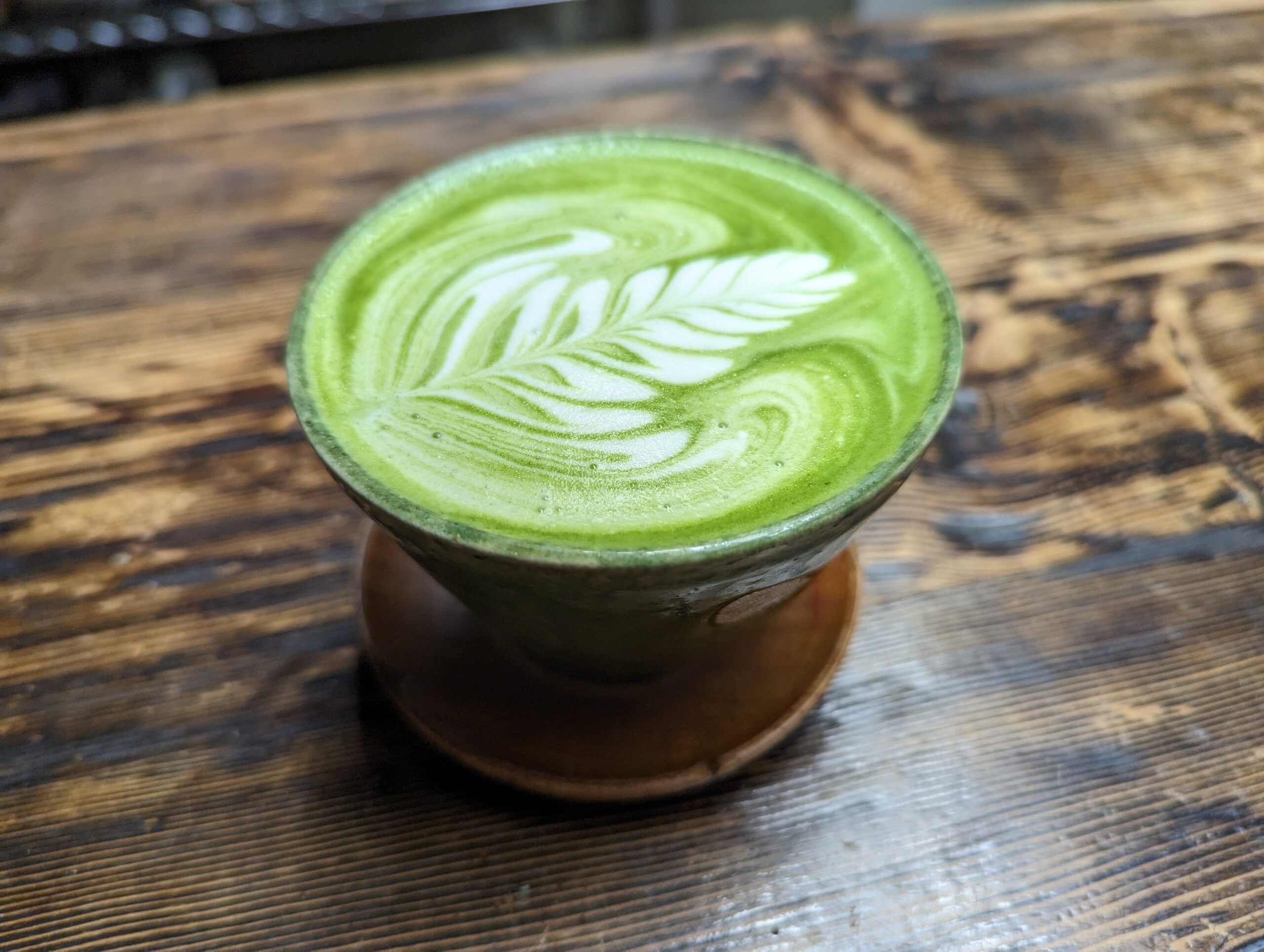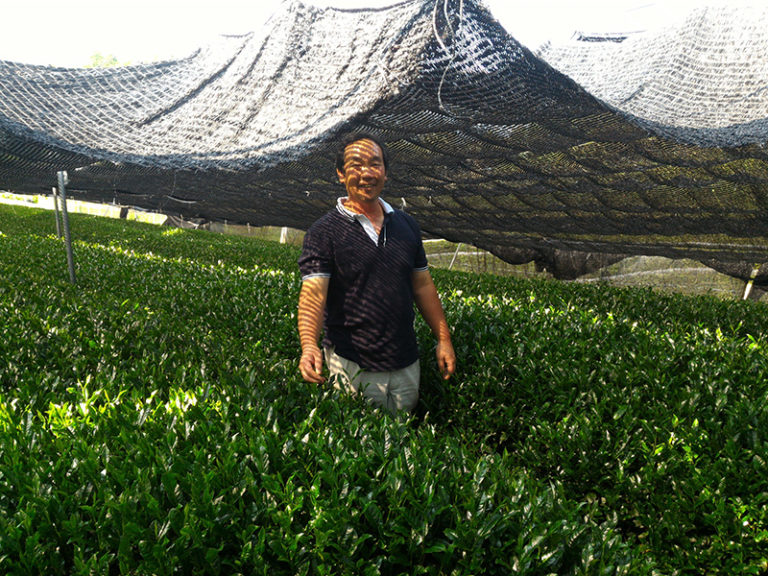
When sourcing tencha for our maccha (and any tea we bring in) we strongly believe in choosing to work with small farms that produce carefully and are good stewards of the land that they cultivate. We have built up great relationships with many farmers over the years, but we will be focusing on three families in particular here: the Fujiokas, Takakis and Yamaguchis. We have learned a lot from each of them and do our best to visit in person regularly (when it’s not a pandemic). They each bring a unique perspective to their tencha and tea production with themes married to their terroir and farming styles.
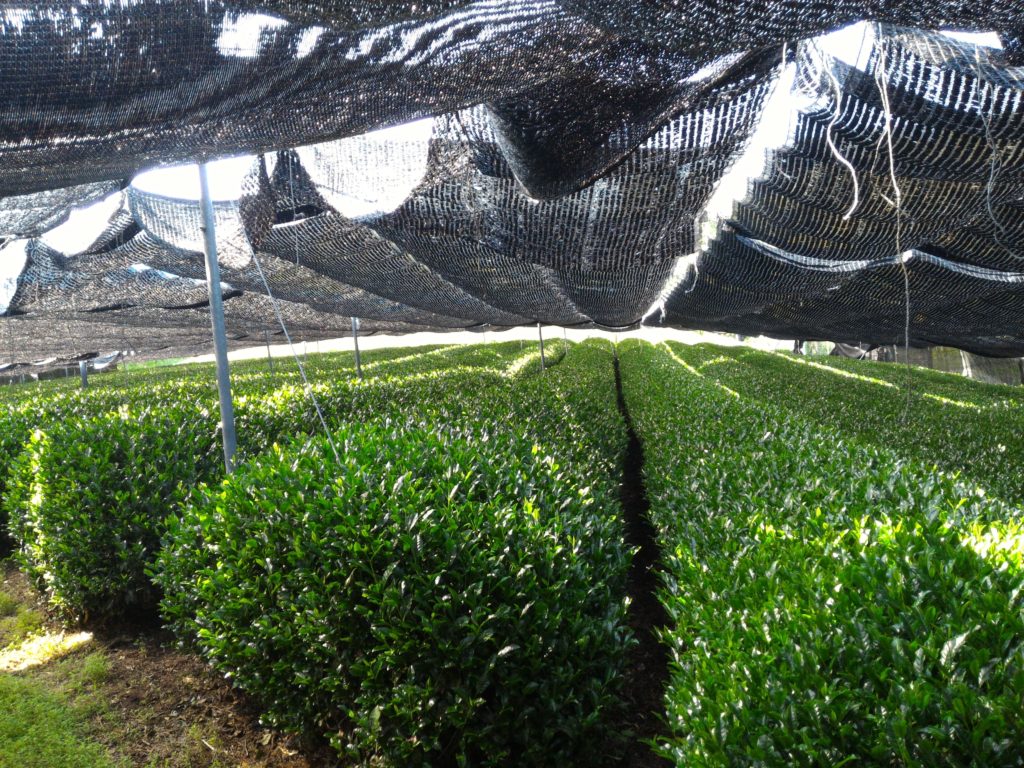
The Fujioka Family
The Fujiokas are located in Wazuka, Kyoto, Japan, and have been growing tea for over 200 years. We have been working with them for over a decade, and as far as we know, we are their only wholesale customer. They sell their teas to us and at their roadside stand, farmers market style, and they go to specialty department stores like Takashimaya to sell direct.
We find their teas exemplary and emblematic of the region. They are unique in the Japanese tea industry in that the farm is vertically integrated. Grandpa Fujioka partnered with a couple local farmers to purchase production equipment in order to process from the raw leaf to the finished product. (Normally farmers bring their harvest to a tea factory to process for them into “ara” or rough leaves and to a different facility again to finish.)
We love their focus on aromatics, a major value for those producing tea in the Kyoto region. They are the ones that introduced us to single cultivars, staggering harvests with their Okumidori following their Yabukita; the simplicity of keeping things unblended has really helped us understand the layers of technique they bring to the table, and the regional choice to keep things unfired has allowed us to understand the complexity of lightly processed Japanese greens better.
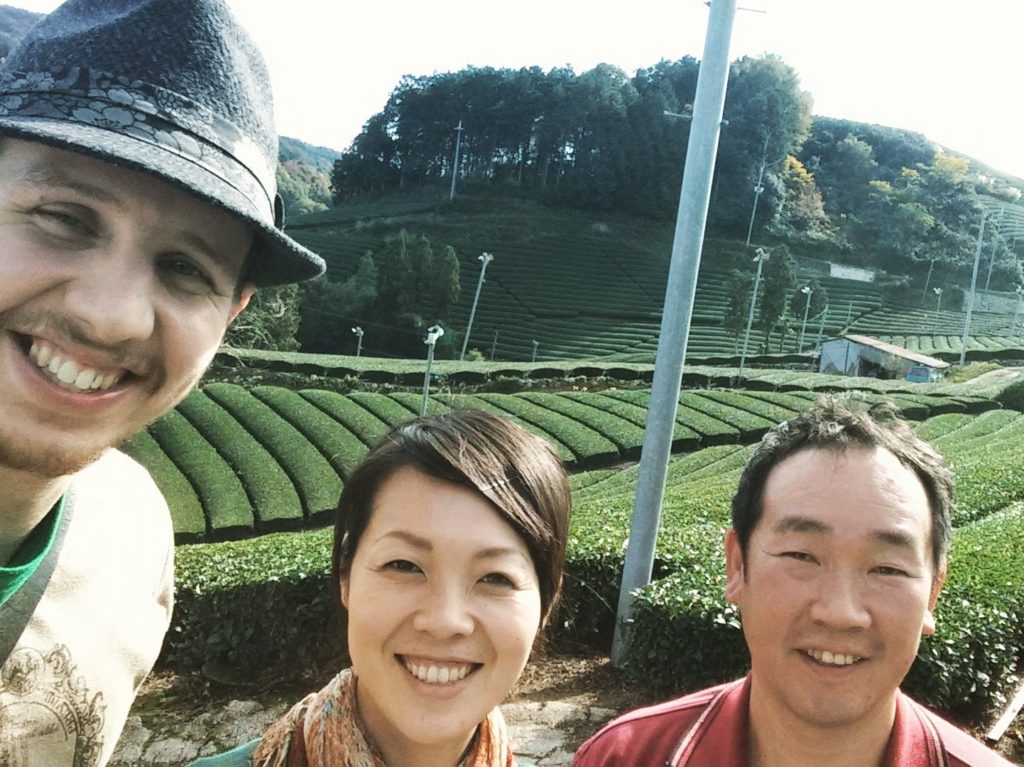
More recently, we’ve started getting into micro-climates with them, with the same cultivar grown in different micro-lots (Fukuda, Shimoyama, Okuda). We like to compare this to how tomatoes grown in front of your house taste different from tomatoes grown behind your house. The fact that they are also the local fertiliser suppliers helps them to really appreciate the fundamentals of soil and you can really taste the difference between areas and how they cultivate those areas. They pour their heart and soul into the Okuda lot and it shows.
The Fujiokas are likely the most committed to a classic style of growing tea, don’t compete in any competitions, and simply continue the traditions they have been passed down for 7+ generations. They bring us simple but amazingly complex selections from one of the most famous tea growing regions in Japan. Time and time again, their teas are what we use to compare next to when assessing the work of other farms. They are consistent, interesting, and a joy to work with.
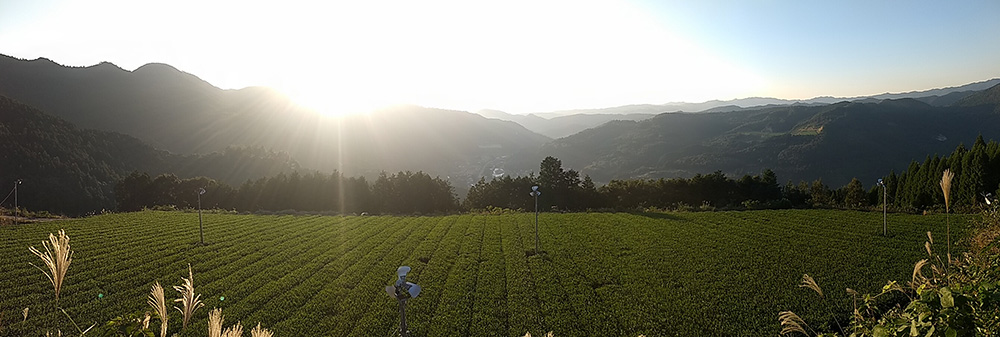
The Takaki Family
Located on the Southern island of Kyushu in Japan (Hoshinomura, Fukuoka Prefecture) the Takakis are innovative and well educated. Grandpa Takaki started the company and his son, Kohei-san, has since taken over, but it is most definitely a family effort.
With only two generations, the farm could be considered young by domestic standards, but Kohei went to Shizuoka Tea University, and his father has travelled the world in his study of tea. The son meets annually with alumni to stay current with his knowledge. He also coaches the hand rolling sencha team for his prefecture and they regularly place in the top 5 in competition.
The Takakis love to experiment with new tea cultivars and are constantly taking on abandoned tea farms and building new ones in Hoshinomura village. They have invested in a tea tractor and use great strategy to manage around 16 hectares with only 7 people. Kohei-san is often hired to even harvest neighbouring tea farms with his tractor.
We love that they converted an abandoned tea farm for spray-free agriculture at our request (due to an agreement we made to purchase all he grew there) and that they have been game to send us single cultivar aracha and sencha even though what they sell internally are all blends. They even managed to get us some unfinished tencha in 2021 so that we could start our plans to finish fire in house on our tea roaster before milling into maccha.
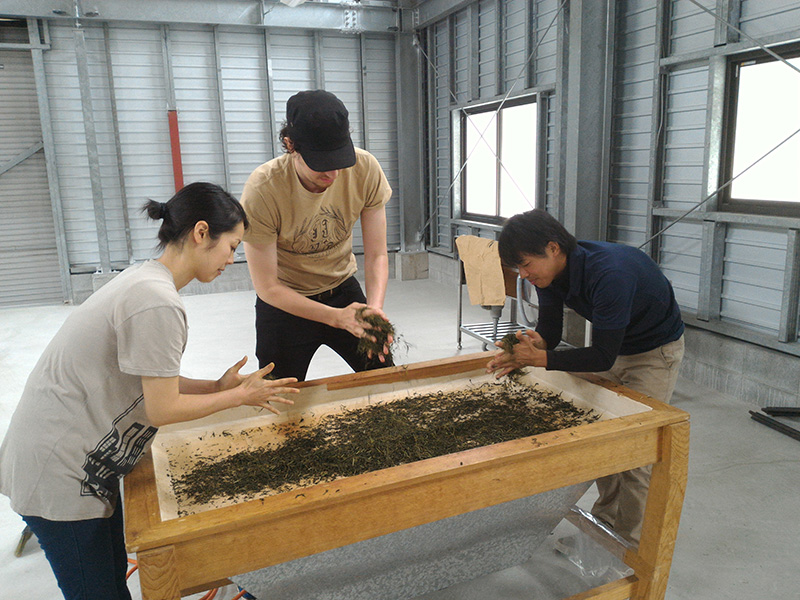
On that note, Kohei-san has been instrumental in understanding some of the complexities of finish firing tea in a tea roaster. He has tuned in virtually to assess the roaster and offer advice on optimising performance and flavour, giving us candid and incredibly helpful advice on the process. This is not the norm, as the coordinates for an ideal finish firing are often kept secret by the ones that do it.
It is the Takakis’ openness, transparency, and commitment to their craft, along with their genius when it comes to finish firing, that has us so excited to work with them. Their regional norm is to toast the tea a bit to draw out nuttiness and lightly caramelize the tea sugars. Their careful attention to detail and focus on toasting the tea enough to draw out its personality without hiding behind “roastiness” is what really sets them apart in the region as far as we are concerned.
The Takakis regularly invite us to participate in tea making processes whenever we visit, whether it’s helping to tie down the shade covers for their fields in the Spring, setting up a hand rolling tea session, involving us in crimson tea making, the list goes on. We are always so very grateful for their openness and keenness to share.
Unlike the Fujiokas, they are not vertically integrated. But their infrastructure, careful investments in the parts of the process that build on efficiencies and craftsmanship, make them an inspiration for us as partners in the process of sharing tea, but also as fellow business owners. Every year, every visit, adds a new and interesting layer to the relationship.
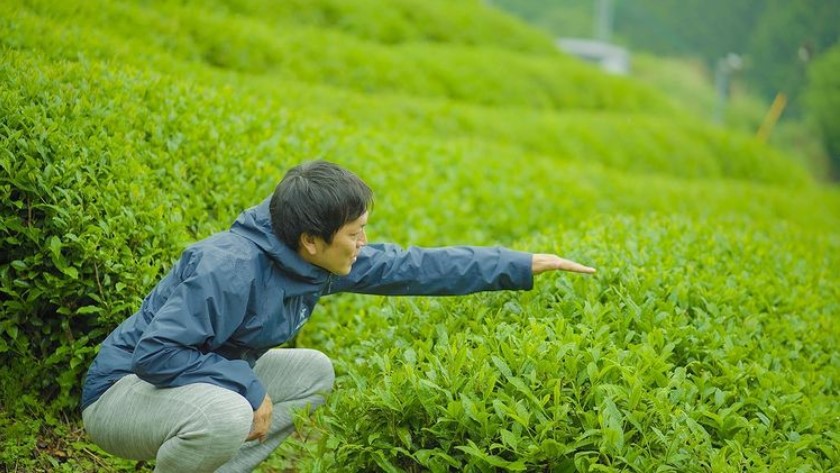
The Yamaguchi Family
Located near to the Fujiokas in Ujitawara, Kyoto Prefecture, the Yamaguchis are our most recent connection. Focused on aromatics over umami, and transitioning as many tea fields as they can to organic production while keeping the quality high, we see a strong future in this relationship that started in 2020 at the beginning of the pandemic.
The Yamaguchis trace their lineage back to the guy who invented sencha, and have tea fields in one of the oldest growing areas in Kyoto. Operated by a tea farmer who is quite young by industry norms, they have found a niche in exporting unusual teas for the international market. Our interest in organic prompted them to transition even more of their fields to organic (now that they know they have a buyer), and it has been awesome to see the quality driven improvements to the fields go uninterrupted during this transition. Apparently he wanted to make this switch for some time, but domestic buyers were not able to offer prices that would make it possible

The Yamaguchis are interested in new styles of tea as well as ancient heirloom cultivars grown from seed or recovered from the wild. They have experimented with making white teas, crimson, wulongs and even true black teas, very unusual in a country where over 95% of production is green tea.
Though their main tea is sencha, we buy several tenchas, including Okumidori from the Ninotani lot, and a Yabukita from the Kuromamezaka lot. The flavour and aromatics really pop and make for a fascinating journey down the rabbit hole of aroma forward tenchas. His Zairai-shu tencha experiments have us very excited for future years.
The farm is the smallest that we work with, and we were stoked to have him on episodes of JagaVision. He is very committed to both celebrating ancient tea heritage and exploring what is possible for new teas and styles. His belief that organic agriculture provides for a both a better environment and more distinct flavours helps reify our belief that flavour is multi-faceted; the goal that the industry has for umami forward teas above and beyond everything else is misguided. Teas that have identity like the Yamaguchis are very much proving that unusual aromatics and balanced bitters bring depth to tea. We are very interested in how this relationship develops over the next years and have already learned so much!
Share this article
Search the blog
JagaSilk Links
Article Categories
- Uncategorized (13)
- JagaSilk (10)
- JagaVision (2)
- Other (1)
- Tutorial (7)
- Maccha Archives – JagaSilk (14)
- Tea (16)
- Origin (7)
Subscribe to our Newsletter
Love maccha? Sign up and get 10% off your first order. You'll also receive new articles and video content!

